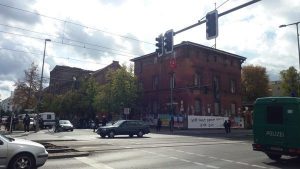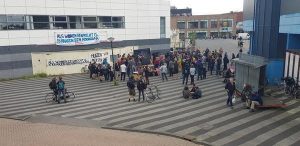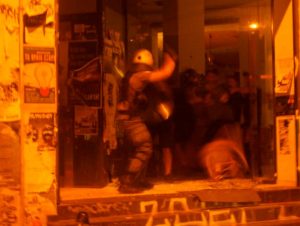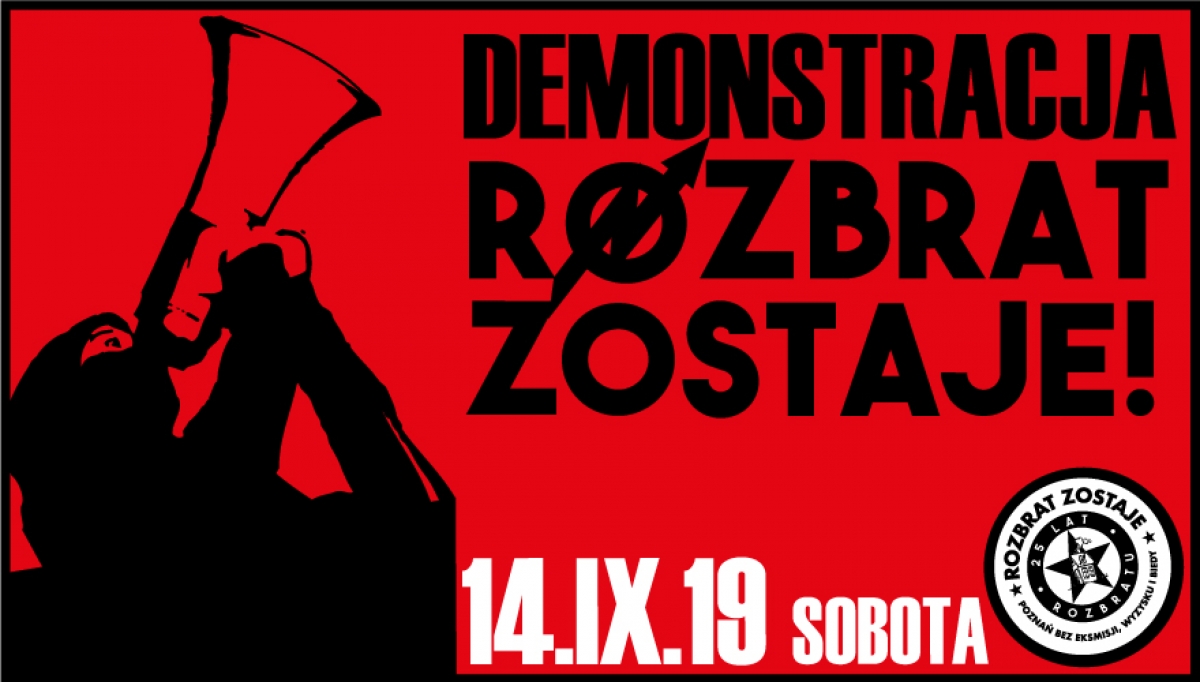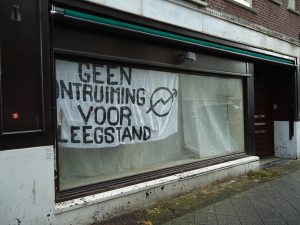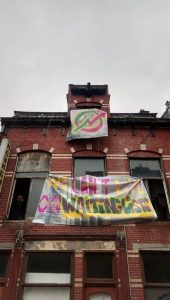 A few days ago, a group of students occupied the former Heijkens building on Akerkstraat. The youngsters who are looking for housing are trying to raise the issue of the national housing shortage. The squatting action is part of a national campaign in the context of the nine-year squatting ban. “During this time, it was mainly squatters who had to suffer, while landowners and speculators get away with vacancy. So the ban is not a solution to the housing shortage”, according to the students’ spokesman.
A few days ago, a group of students occupied the former Heijkens building on Akerkstraat. The youngsters who are looking for housing are trying to raise the issue of the national housing shortage. The squatting action is part of a national campaign in the context of the nine-year squatting ban. “During this time, it was mainly squatters who had to suffer, while landowners and speculators get away with vacancy. So the ban is not a solution to the housing shortage”, according to the students’ spokesman.
Since 1 October 2010, the Squatting and Vacancy Act applies. The purpose of this law was to reduce the vacancy rate in the Netherlands. However, research commissioned by the Ministry of Security and Justice and the Ministry of the Interior shows that the effects of the vacancy policy are hardly visible. At the beginning of this year, some 96,500 m² of office space was vacant in the city of Groningen, half of which is not even for rent or sale. The vacancy rate of office buildings in the Netherlands has almost doubled. [Read More]
